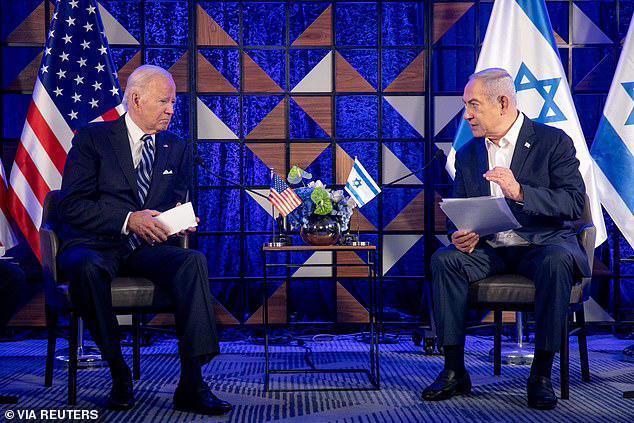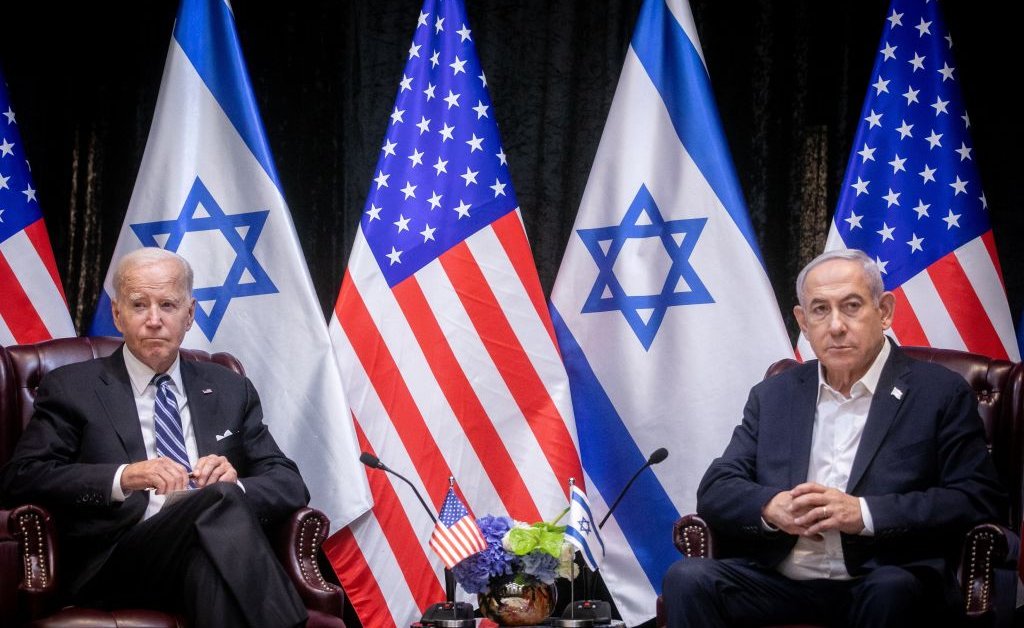The White House disclosed that President Biden spoke once more with Israeli Prime Minister Benjamin Netanyahu, emphasizing his opposition to Israel’s plans to invade Gaza’s southern city of Rafah amid global apprehension for the safety of over a million Palestinians residing there. This stance, rooted in humanitarian concerns, has strained relations between the U.S. and Israel. Secretary of State Antony Blinken is set to return to the Middle East on Monday to further engage with the situation.
During the call, Biden reiterated the importance of sustaining and enhancing the delivery of humanitarian aid to Gaza, although his tone was less stern compared to previous discussions. There was no immediate response from Netanyahu’s office regarding the call. Qatar, a significant intermediary, urged both Israel and Hamas to exhibit more commitment and seriousness in negotiations. Despite being pivotal in prior ceasefire negotiations, Qatar expressed frustration and hinted at reassessing its role.
Anticipated talks between Israeli and Hamas delegations in Egypt indicate a potential avenue for progress. However, Qatar’s Foreign Ministry spokesperson voiced disappointment with both parties, suggesting that decisions have been driven by political interests rather than the welfare of civilians. Talks seem to have stalled, with each side entrenched in its position, according to the spokesperson.

Biden Talks to Netanyahu About Rafah Invasion and Ceasefire Talks Pressure (Credits: Reuters)
An Egyptian official disclosed discussions with Israeli counterparts regarding a new proposal for a prolonged ceasefire in Gaza. Israel’s openness to discussing a permanent ceasefire marks a potential shift in its stance, contingent upon the release of civilian hostages and the initiation of a reconstruction process in Gaza. Recent negotiations have revolved around a ceasefire proposal and a hostage exchange.
The mounting pressure for a ceasefire aims to prevent an Israeli incursion into Rafah, which hosts a significant portion of Gaza’s population. Palestinian President Mahmoud Abbas warned of an imminent invasion, but the White House stated that Israel assured it would delay any action until U.S. concerns were addressed. The troop buildup near Rafah could serve as a negotiation tactic, with Israel aiming to dismantle Hamas’ military capabilities.
Aid organizations are actively responding to the humanitarian crisis in Gaza, with significant aid shipments arriving and plans to resume operations. However, the ongoing conflict, characterized by reciprocal attacks and hostage situations, underscores the urgent need for a lasting ceasefire to alleviate the suffering of civilians caught in the crossfire.























